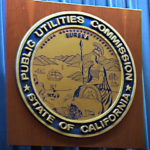Getting back to the Volkswagen Dieselgate emissions cheating scandal, one of the open questions is “when” and “why” did VW resort to cheating on emissions tests? Earlier I’d reported statements in the press that Bosch had warned Volkswagen as far back as 2007 against using certain test software to control the emissions system, because it would be illegal. And, it seems, that Volkswagen didn’t want to bear the $1500 cost per car of a urea based emissions control system. Now a new report from the German newspaper, Bild am Sonntag, says Volkswagen’s decision to cheat occurred in 2008 shortly before the EA 189 engine went into mass production.
I wasn’t able to find the article on the Bild website, so will instead link to NY Times![]() and Marketwatch
and Marketwatch![]() coverage.
coverage.
The engine had been in development since 2005, and was meant to meet tougher emissions control standards. However, engineers could not get it to actually perform to those emissions standards, at the targeted cost for the engine. After several years development, at great expense, Volkswagen was faced either with abandoning introduction of the engine, or cheating. Apparently VW couldn’t stomach not meeting the cost target?
The Bild am Sonntag report cites unnamed sources close to the investigation.
Among the top executives who’ve been suspended from Volkswagen are:
- Ulrich Hackenberg, head of development for all Volkswagen Group brands, including Audi, and previously head of development for Volkswagen-brand cars from 2007 to 2013;
- Heinz-Jakob Neusser, currently head of development for the Volkswagen brand;
- and Wolfgang Hatz, head of engines and transmissions development for all Volkswagen brands.
Thinking about the timeline of this, as someone who has worked in (software) engineering organizations …
This engine was in development since 2005, and the decision to cheat came in 2008. It’s extremely likely the engineering staff knew of the problem much earlier than 2008. They might have had a working engine in (say) 2006, and then working diligently on the design to iron out “bugs” (defects). Since emissions control was a key acceptance goal for this engine, they will have known early it wasn’t meeting emissions requirements. Therefore in 2008 the decision to cheat will have been made after many other possible solutions had been tried.
The pressure to meet the production deadline at the targeted engine cost will have forced VW into cheating.
- Is there enough Grid Capacity for Hydrogen Fuel Cell or Battery Electric cars? - April 23, 2023
- Is Tesla finagling to grab federal NEVI dollars for Supercharger network? - November 15, 2022
- Tesla announces the North American Charging Standard charging connector - November 11, 2022
- Lightning Motorcycles adopts Silicon battery, 5 minute charge time gives 135 miles range - November 9, 2022
- Tesla Autopilot under US Dept of Transportation scrutiny - June 13, 2022
- Spectacular CNG bus fire misrepresented as EV bus fire - April 21, 2022
- Moldova, Ukraine, Georgia, Russia, and the European Energy Crisis - December 21, 2021
- Li-Bridge leading the USA across lithium battery chasm - October 29, 2021
- USA increasing domestic lithium battery research and manufacturing - October 28, 2021
- Electrify America building USA/Canada-wide EV charging network - October 27, 2021


















Pingback: VW blames Dieselgate decisions on engineers, not upper management – The Long Tail Pipe